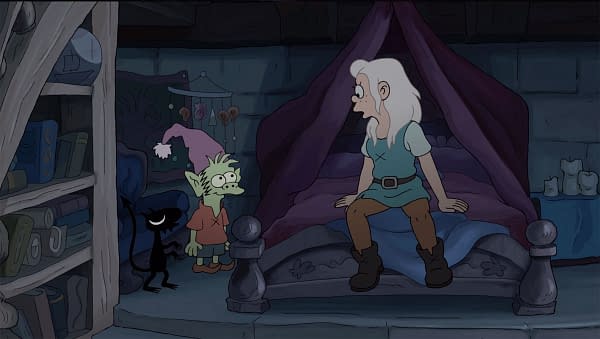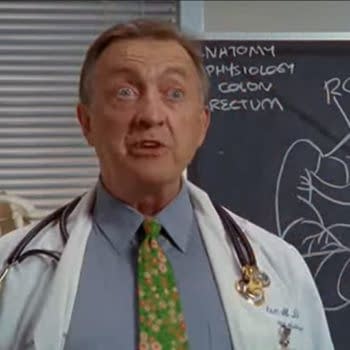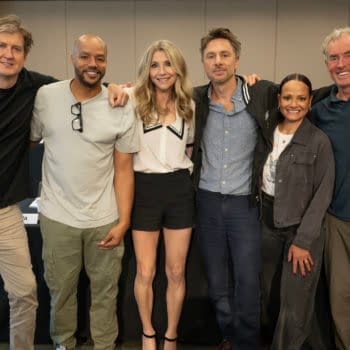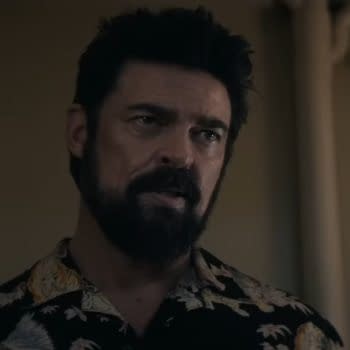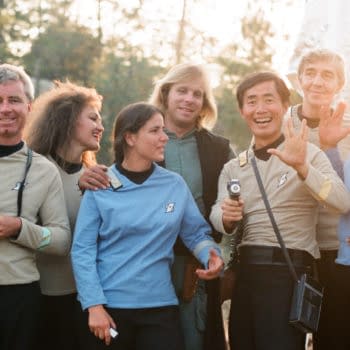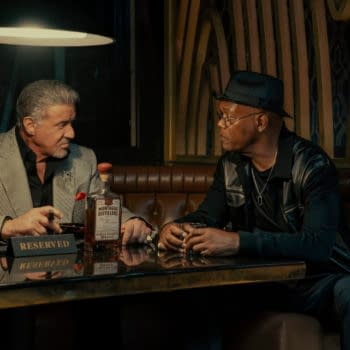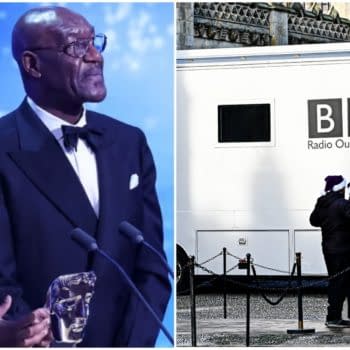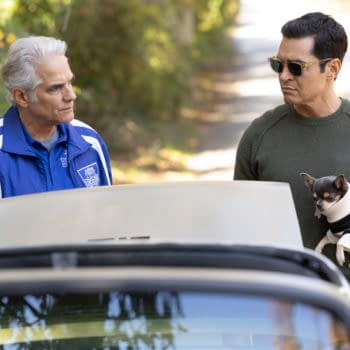Posted in: Netflix, TV | Tagged: Abbi Jacobson, animation, bleeding cool, cable, cartoon, disenchantment, eric andre, Eric Barry, john dimaggio, nat faxon, netflix, Review, streaming, television, Tress MacNeille, tv
Disenchantment Part 3: Why Matt Groening Series Lacks Lasting Appeal
With the release of Part 3 of Netflix's Disenchantment, the series reminds us of the limited narrative space it boxed itself into. The third animated show after the neverending Simpsons and Futurama for Matt Groening, the series follows Bean (Abbi Jacobson), who's propped as a person of destiny whether through arranged marriage or birthright regardless of her own wishes. Joined by the similarly disenfranchised Elfo (Nat Faxon) and her enabler, the demon imp Lucy (Eric Andre), the trio tries to survive convoluted conspiracy after conspiracy always threatening their kingdom of Dreamland.
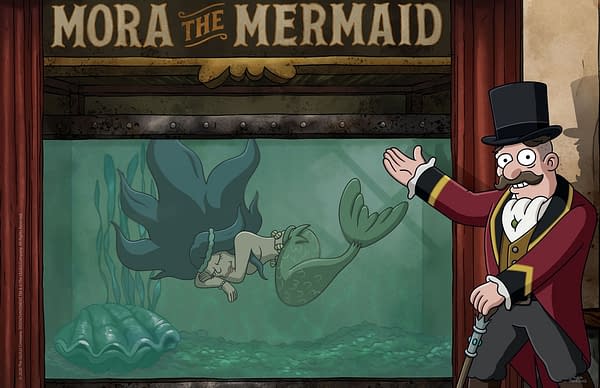
The scheming Odval is one of the more interesting characters of the series, but he manages to always escape any culpability of his actions. Even as the plot advances favorably to the protagonists, Bean still keeps him around without any repercussions with the adage of "keeping your friends close and your enemies closer." Most frustrating of all is Bean's relationship with the former Dreamland queen Dagmar. Her motives and schemes constantly shift with her daughter. One moment, she props Bean to become a sacrifice, next moment she saves her from an execution thanks to her allegiance with the Troggs before finding out how her mother actually treats the Troggs who serve her.
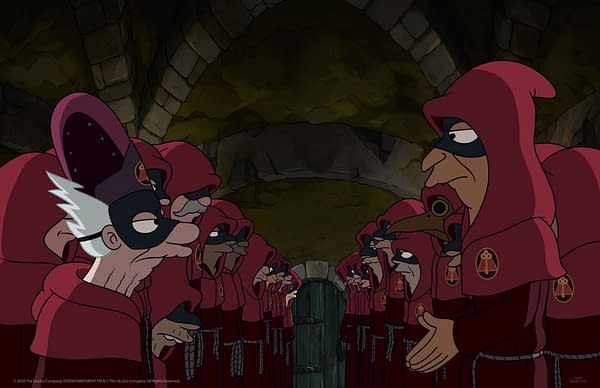
The schemes that don't go anywhere, the lack of real development between most characters, and the feel of how it just recycles itself don't show me the series has anywhere near the lasting appeal of Groening's predecessors. It's a shame too that while the series has its share of comedic moments, it can't seem to get out of its own way. Even when the series introduces another world like Steamland, it manages to make the idea boring when it turns out to be more of the same. Disenchantment is available to stream on Netflix.
![“Disenchantment” Season 1 Part 2: Critically Hits All Strides [REVIEW]](https://mlpnk72yciwc.i.optimole.com/cqhiHLc.IIZS~2ef73/w:600/h:339/q:75/https://bleedingcool.com/wp-content/uploads/2019/09/disenchantment2_092819-600x339.jpg)


